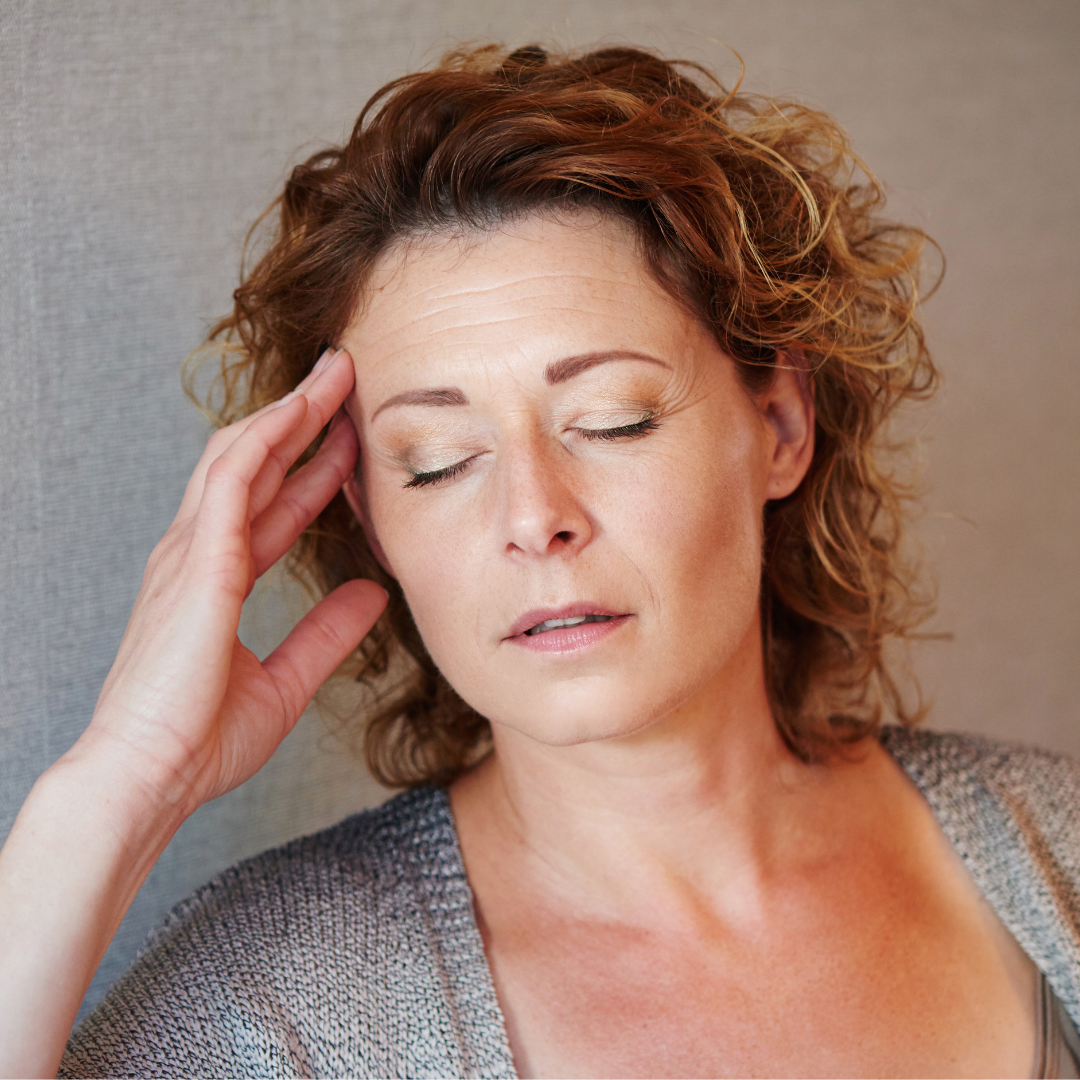
What are the common symptoms of the menopause?
Menopause symptoms - what you need to know
Symptoms can be really varied. There’s a lot more to menopause symptoms than hot flushes.
Nobody gets all the possible symptoms, all the time.
Get specific about which symptoms are bothering you and don’t forget the less obvious things.
Use the symptom tracker to help you work out what’s going on for you.
Get help, there’s solutions to help every single symptom of the menopause, you don’t have to put up with anything.
In-depth - the common menopause symptoms explained
Now before you read this section, please remember that we have rarely seen any women being affected by all the symptoms we talk about here. There are over 40 possible symptoms, some you’ll probably be aware of but there will be so many you might not know about. Our job is to make sure you know what to look out for - it’s not to worry or scare you. We want to arm you with all the knowledge and the information you need.
We’ve seen far too many women who felt anxious, couldn’t sleep, and had no energy. They didn’t know they were feeling so bad because of menopausal hormone changes. They were terrified they had a serious illness or that they just had to put up with feeling wretched. We don’t want that to happen to you.
Menopause is not an illness, it’s a natural part of every woman’s life. There are masses of ways you can treat all menopausal symptoms; you don’t have to put up with them.
To choose the right treatment you need to identify the symptoms which are bothering you. You’ve got oestrogen receptors all over your body - so when your oestrogen levels change you can feel the effects literally anywhere from the top of your head to the tips of your toes. That’s why there’s so many potential symptoms. When our Menopause Specialist Doctors talk to a woman face-to-face about how she’s feeling, they talk about symptoms in groups to make it easier - we will do the same in this blog article below.
You might have symptoms from just one group - you could have a couple of symptoms from a few different groups or all the groups. And of course, you might be lucky and have no bothersome symptoms at all, but you should still be aware of some of the hidden menopause symptoms.
Menopause symptom groups:
- Emotional, concentration and brain fog symptoms
- Vaginal and urinary symptoms
- Other physical symptoms
- Weight gain
- Sleep
- Hidden symptoms
- Emotional, concentration and brain fog symptoms
Women often tell us they feel anxious, irritable, and depressed or sometimes tearful. Other women say they just don’t feel like themselves anymore - it's easy to lose your confidence or your enthusiasm for things you normally enjoy. Mood swings a bit like you may have experienced with PMT are common. If you suffer from PMT it might get worse as your hormone levels change. Brain fog, poor memory and lack of concentration can really impact your confidence, and all this over time can leave you feeling thoroughly miserable. Another very common symptom is a loss of libido.
These symptoms are so often misdiagnosed as more general depression and anxiety. While antidepressant medication can be helpful in some cases, the emotional symptoms of menopause often need other treatments, and these can work really well.
Vaginal and urinary symptoms:
Vaginal dryness isn’t something most women want to talk about, but we need to try and get passed any embarrassment. It happens to 40% of women in menopause and is too uncomfortable and painful to remain silent about it. When your vagina loses its lubrication and becomes less elastic it can make intercourse painful. No sex can put a huge strain on relationships. The changes happen as because of falling oestrogen levels and can come along with other nasty symptoms like bladder weakness, stress incontinence and more general urinary incontinence. Some women find they get more urinary tract infections as well.
Women with vaginal dryness tell us that they find wearing trousers, and especially jeans really uncomfortable. Sometimes the vagina becomes so sensitive even wearing underwear is painful. Your vagina naturally produces a liquid discharge which becomes more watery at menopause. The discharge can also change colour and be a bit smelly - this is very common, and it can make your vagina itchy and give you a burning sensation.
All of these symptoms can be improved and managed very simply so please don’t be embarrassed to discuss them – don’t suffer in silence.
Other physical symptoms
Some of the other physical symptoms which women experience are more well known. Things like hot flushes, night sweats and headaches are talked about a lot. There are a whole host of other things in the mix you could notice too. Palpitations, dizziness, general tiredness and low energy and aching joints are all very common issues. Some women have really itchy skin, your hair may change or get thinner, and you can find your eyes get dry. If you already struggle with your digestive health, you might find your symptoms get a bit worse or sometime women start experiencing irritable bowel syndrome type symptoms for the first time.
Its easy to see how some of these symptoms can be mixed up with other complaints isn’t it? It’s so important that you look at symptoms together and think about when they started, what else has changed apart from the most bothersome issues. Don’t forget the small things. We really encourage you to use the symptom tracker as much as you can - it’ll help you to pinpoint all your symptoms. The more specific you can be about your symptoms the more help and treatment options you’ll have.
All these symptoms can be controlled so once again you really don’t have to put up with them.
Weight gain
There is barely a woman we see who hasn’t had issues with weight gain during their menopause. Oestrogen has a huge influence over how your body stores fat. Traditionally women tend to have a slightly “nipped” in waist (think hourglass) but as your oestrogen levels reduce this starts to fill out. Fat is stored down around the upper body, the trunk, back and waist. Studies show that on average women gain around 10kg over the course of their menopause. The weight-loss diets which can work before menopause don’t help now. There’s a lot going on which makes this weight stubborn, but it most definitely can be reversed. You really need to devise a lifestyle plan which includes changes to exercise and diet and which is tailored to your menopausal body. We have hundreds of women who have taken back control of their weight and you can do the same.
Sleep problems
Almost as many of women struggle with sleep as struggle with weight at menopause. Nearly 70% of you tell us that you have problems getting to sleep, staying asleep or that soon after you get to sleep you are awake again. Literally every other symptom you might be struggling with feels worse if you are regularly deprived of a good night’s sleep.
Any symptoms you do experience can be improved and treated. The key to getting the right help and treatment is to identify specifically what symptoms are bothering you. If you haven’t done it already, please do go and use the personalised symptom tracker in our members' area to help you get started on the road to feeling better. Learn more about our members' plans here.
Find more blogs like this:
www.harleystathome.com | Instagram @harleystreetathomemenopause
Facebook: Search Harley Street at Home: Diagnosis, Symptoms & Treatments or Harley St at Home: Lifestyle, Self-Care and Lifestyle to join our private community



